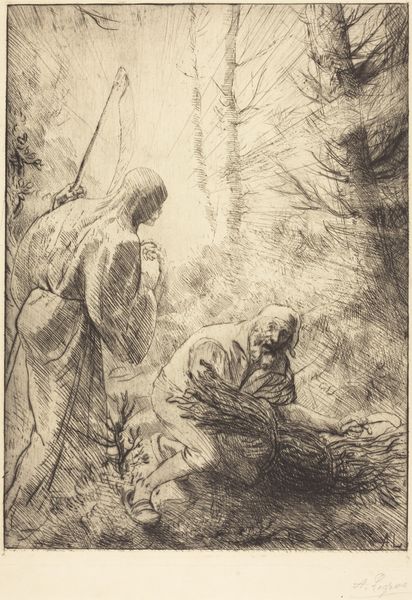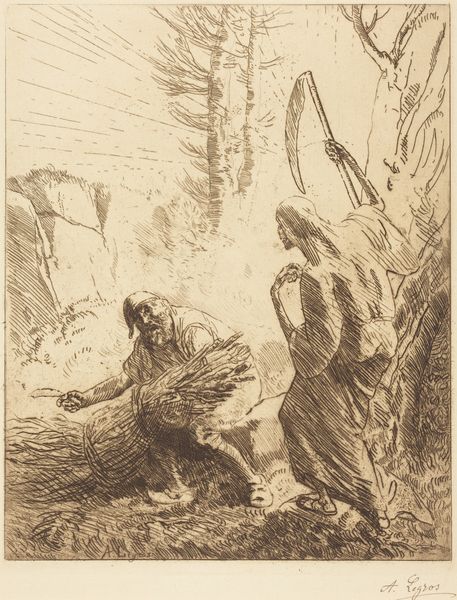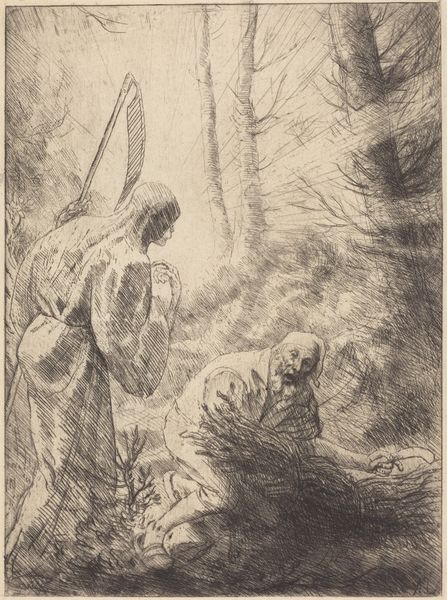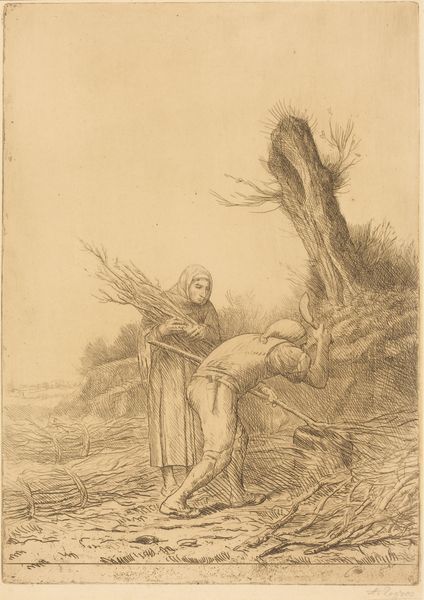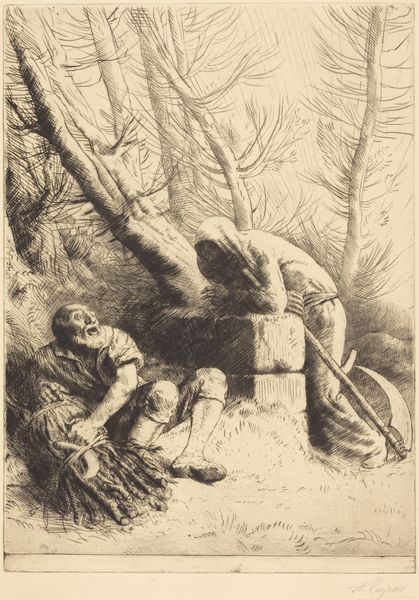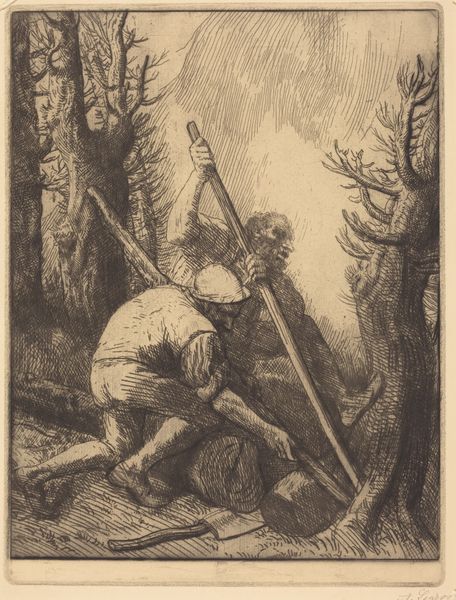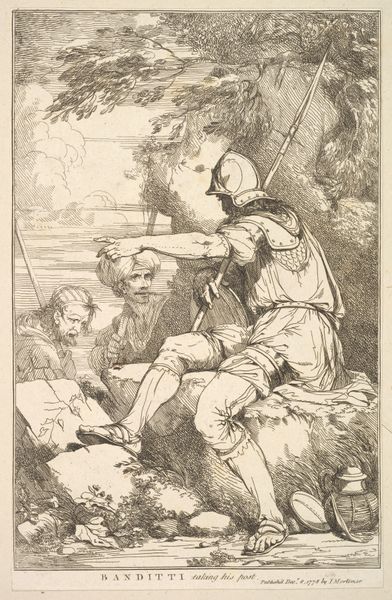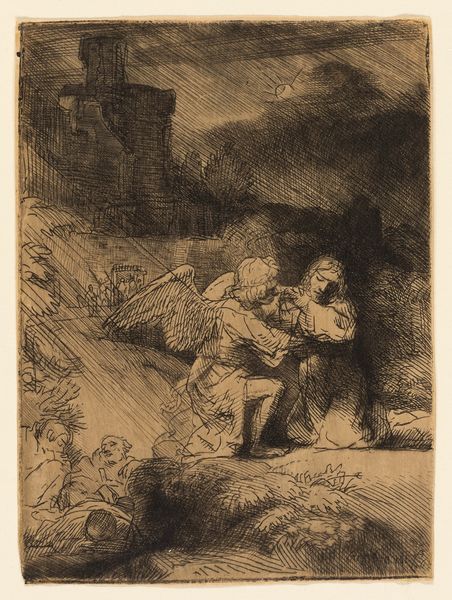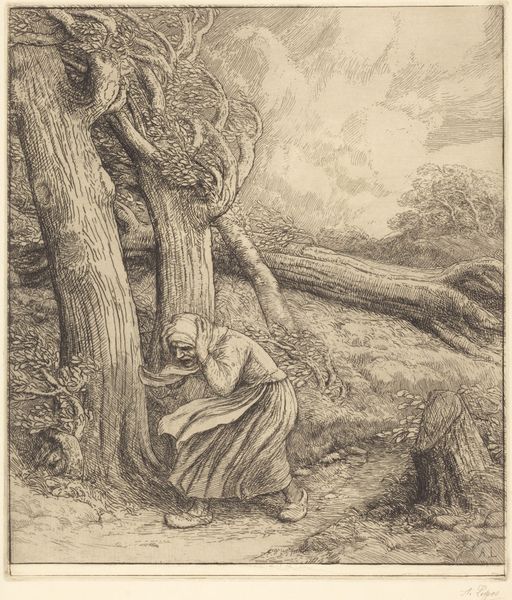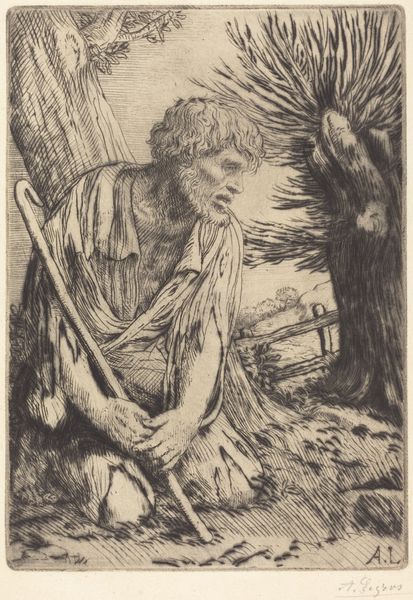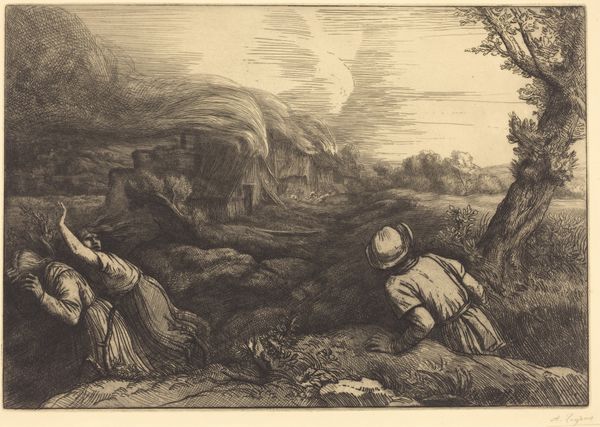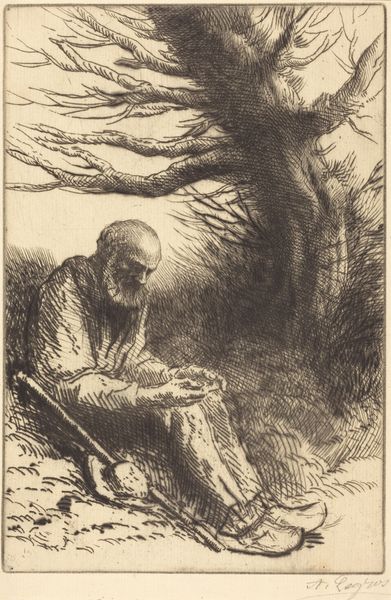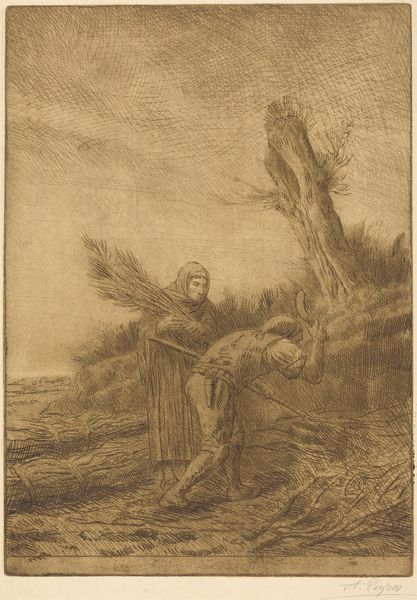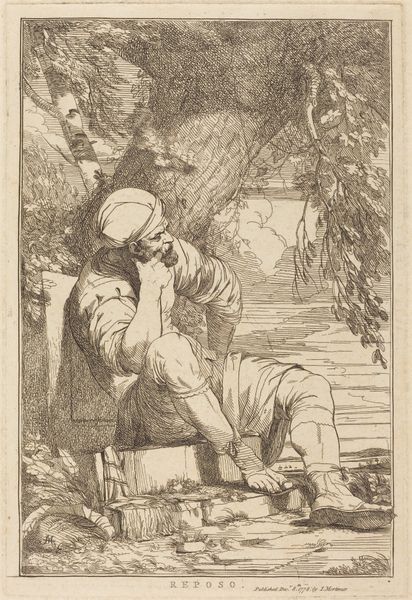
Death and the Woodcutter, 2nd plate (Le mort et le bucheron)
0:00
0:00
print, etching
#
allegory
#
narrative-art
#
baroque
# print
#
etching
#
landscape
#
figuration
#
history-painting
#
realism
Copyright: National Gallery of Art: CC0 1.0
Alphonse Legros created "Death and the Woodcutter" using etching, a printmaking technique that harnesses the stark contrast between light and shadow. The composition divides the scene into two distinct planes: a foreground dominated by the woodcutter, and a background occupied by the looming figure of Death. Legros uses line work to convey texture, age, and mortality. The woodcutter, burdened by his work, embodies the ephemeral nature of life. Death, however, is rendered with a series of longer, curved lines that soften the edges of the grim reaper, and gives a sense of the uncanny—an entity both familiar and alien. Through these formal choices, Legros isn't merely depicting a scene but is making a statement about the human condition. The artist confronts us with the inevitable, asking us to consider our relationship with mortality. Legros makes clear that this is not just a depiction of death, but an invitation to contemplate our fleeting existence.
Comments
No comments
Be the first to comment and join the conversation on the ultimate creative platform.
